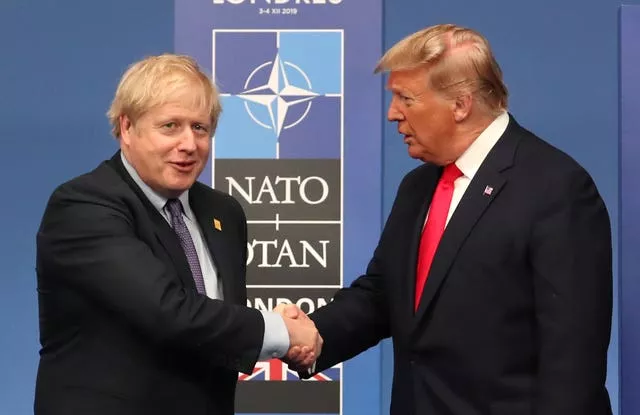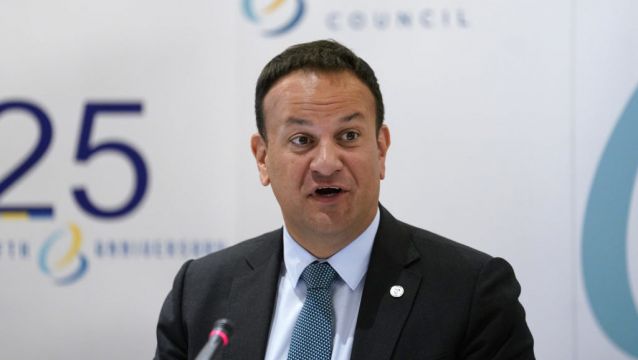Taoiseach Leo Varadkar has said that radical elements of political parties were less likely to take over due to Ireland’s electoral system and fragmented politics.
He also said that he hoped a media outlet with an obvious political slant, such as GB News, would not be established in Ireland, adding that it would possibly not be viable due to the small size of the Irish market.
Speaking at the News Xchange conference in Dublin, Mr Varadkar said that politics has become more personal and that the “advent of the selfie” meant that handshakes and a brief exchange of words were less common.
“I do think generally, across the English-speaking world anyway, politics has become a bit more personalised, much more focused around the leader more so than the party or its policy, so that can that can go both directions sometimes,” he told the conference.
“I think what is very different about British politics and American politics, and maybe mainstream European politics is our electoral systems.
“So because we’ve proportional electoral systems in Ireland and in pretty much all of the European Union, no party tends to win a majority or it’s very rare for a party to win a majority and politics is much more fragmented.
“People need to get transfers in Ireland for example – second votes, third votes, fourth votes.
“What you’ve seen I suppose… both in the Conservative Party, certainly under other Boris Johnson, and Republicans under Donald Trump is the kind of more radical element of the party gaining control.
“And that’s kind of less likely to happen, I think, in countries where you’ve proportional systems or a more fragmented system where people tend to want to keep to the centre.”

He said that migration had not been put centre stage as a political issue in Ireland yet, but there was still a risk that it could become “a major issue”, and was presenting “a significant challenge” to politicians on how to manage.
“It can be something that is hard to talk about.
“A lot of us in politics are talking and thinking about what’s the best way to manage the politics of this because we’ve seen what is happening in other countries where it’s given rise to increased nationalism, where it’s given rise to anti-immigrant parties that have been doing very well in elections.
“So it is, I think, a significant challenge for us.
“But then the public do want to know as well that migration is going to be managed properly.
“I don’t think that most members of the public, nor do I, want an open-door policy.
“We do want a rules-based system, a system that is fair to those who need protection, to those who come here legally, whether it’s work permits and so on, but a system that’s also you know, very firm and very clear that we have our rules.”







